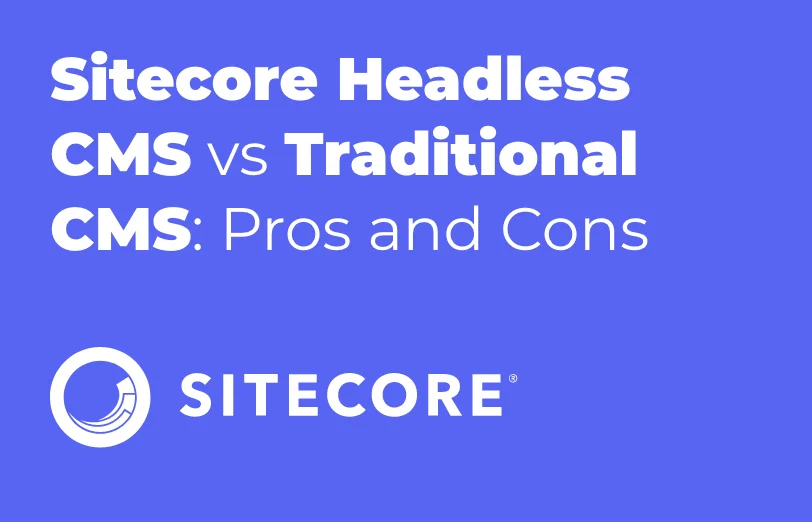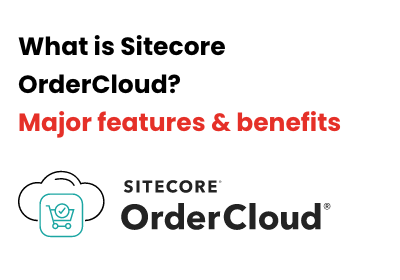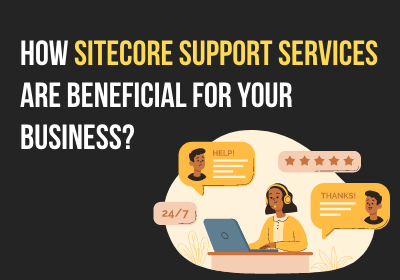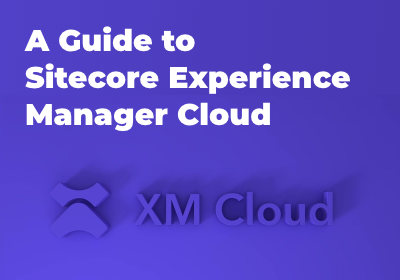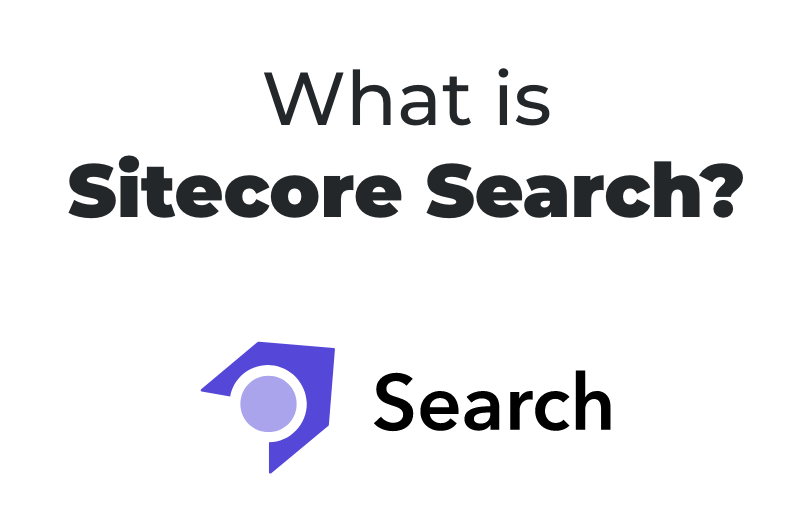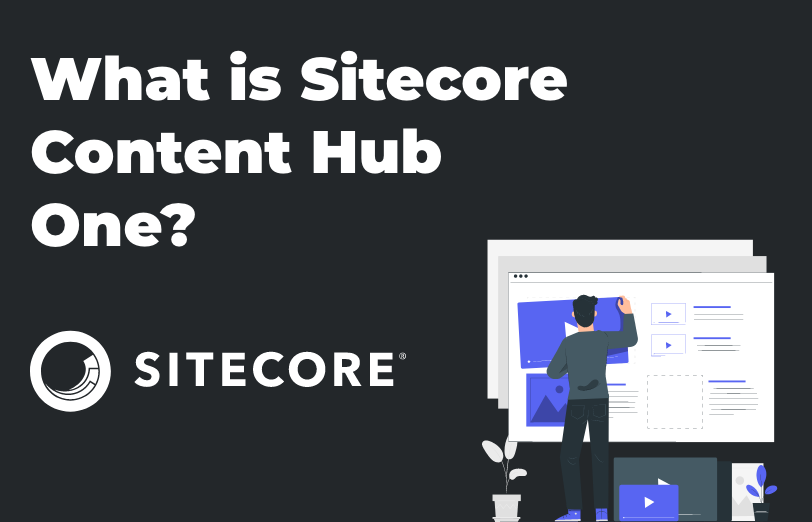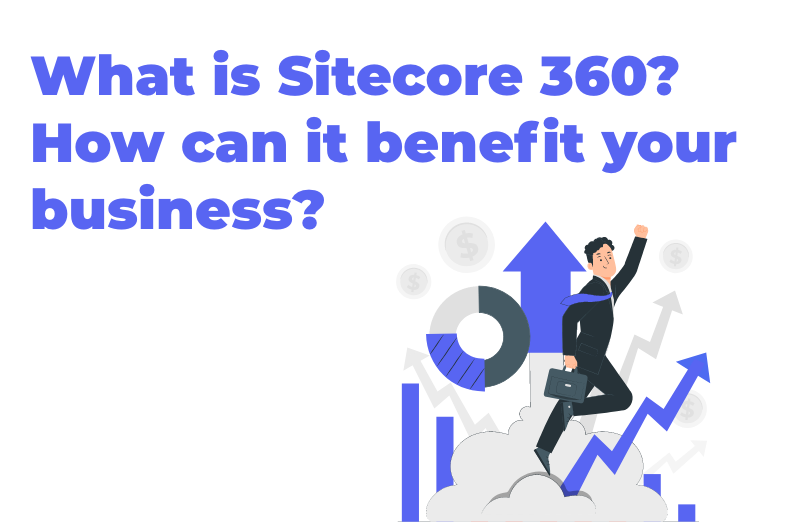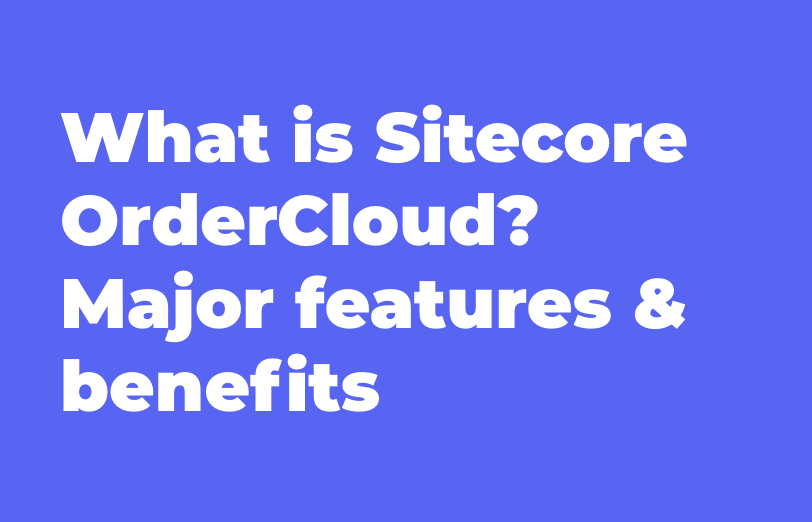Need An Accurate Estimate For Your Sitecore XM Cloud Migration Project? Kickstart Your Journey Here!
Get My EstimateIn this blog, we will explore the differences between headless CMS and traditional CMS platforms to understand their pros and cons and get a better understanding of why Sitecore Headless CMS is one of the leading choices by major, global brands.
CMS platforms have come a long way since the early days of the internet and through this blog, we will explore the different perks and benefits that your brand can avail when hiring Sitecore CMS services.
Understanding Sitecore Headless CMS
Sitecore CMS is versatile and one of the leading CMS platforms in the world which also offers both traditional and headless CMS options. It has headless capabilities which are the most significant part of its appeal.
The headless architecture of Sitecore CMS separates the content for the presentation which then allows you to deliver the content on multiple platforms and devices using APIs. This decoupling of layers also allows your developers to build dynamic and interactive web applications while the marketers can take care of managing content.
Understanding Traditional CMS
A traditional CMS is an all-in-one solution that combines content creation, storage, as well as presentation, all in a single platform. It follows more of an integrated approach that often puts a limit on the flexibility of the content that is being delivered. Although, a traditional CMS sometimes can be easier for less technical users.
Sitecore CMS is preferred by some of the major global brands. This is because of the range of perks it has to offer. Let us talk about it first!
Content Flexibility
One of the primary advantages of getting the Sitecore headless CMS is that it offers you flexibility in content delivery. Your content can be published and distributed across multiple platforms such as websites, mobile apps, IoT devices, and more.
This is very vital for omnichannel marketing where consistent content delivery is crucial.
Developer Freedom
This CMS gives developers more control over how the content is to be presented. They can use their preferred programming languages and frameworks for building web applications which will lead to more customized and interactive user experiences.
Scalability
This CMS is highly scalable and can handle large amounts of content and website traffic which makes it a suitable choice for enterprise-level websites and applications.
Content Personalization
Sitecore excels when it comes to personalization of content. This allows you to deliver tailor-made content for your different user segments. The AI capabilities of this platform can help you analyze user behavior and preferences to make it easier for creating targeted content for better engagement.
Integration Capabilities
Sitecore integrates well with other technologies and systems, enabling businesses to build complex digital ecosystems. This is crucial for companies that use various software applications and services.
Sitecore CMS also comes with its own set of disadvantages. Some of them are discussed here.
Learning Curve
Sitecore Headless CMS can be quite complex for users who are not tech-savvy. Marketers may require extensive training for making the most of this platform’s features.
Development Time
Sitecore does offer customization options extensively but building a web application from scratch can be quite tedious and time-consuming. This might not be suitable for businesses with tight deadlines.
Since a long time, traditional CMS was the way to go. Here are the reasons why.
Ease of Use
Traditional CMS platforms are more user-friendly and allows non-technical users to manage content smoothly. This saves time and resources in content management.
Quick Setup
Setting up a traditional CMS is relatively straightforward. You can choose from a variety of templates and plugins, reducing development time.
Community Support
Many traditional CMS platforms usually have large user communities. This means you will be able to find a wealthy set of resources, plugins, and themes online for enhancing your website.
Traditional CMS no doubt is still quite popular, but it still has its limitations. They are discussed below.
Limited Flexibility
Traditional CMS platforms are less flexible when it comes to content delivery. They often lock you into specific templates or designs to make it harder for you to create unique designs.
Scalability Issues
As your website or application grows with more website visits, the CMS may struggle to keep up. Scaling may require additional development work and potentially moving to a more robust solution.
Less Integration
While traditional CMS platforms can integrate with other tools, they may not offer the same level of integration as a headless CMS. This can be a disadvantage for businesses with complex technology stacks.
The choice between Sitecore's headless CMS and a traditional CMS depends on the specific needs and resources of your organization.
If you are looking for a CMS because:
-
You need a high degree content flexibility
-
You have a development team capable of creating custom applications
-
You need scalability for your business
-
You need personalization features
-
Your digital ecosystem relies on integrations with other technologies
Then go for the Sitecore headless CMS and get a Sitecore CMS development solution provider for your business.
In the ever-evolving world of digital marketing and content management, the choice between Sitecore Headless CMS and a traditional CMS can be quite a significant, impacting decision for your business. Each option has its own set of pros and cons, and the right choice depends on your specific needs and resources.
It is essential to weigh in all the advantages and disadvantages to make an informed decision for your business. Major global brands are now going for Sitecore headless CMS due to its range of offerings that help you elevate your brand.
Want to improve your Sitecore platform? Get a free audit now!

 About Us
About Us
 Careers
Hiring
Careers
Hiring
 Our Story
Our Story
 Let’s talk
Let’s talk







